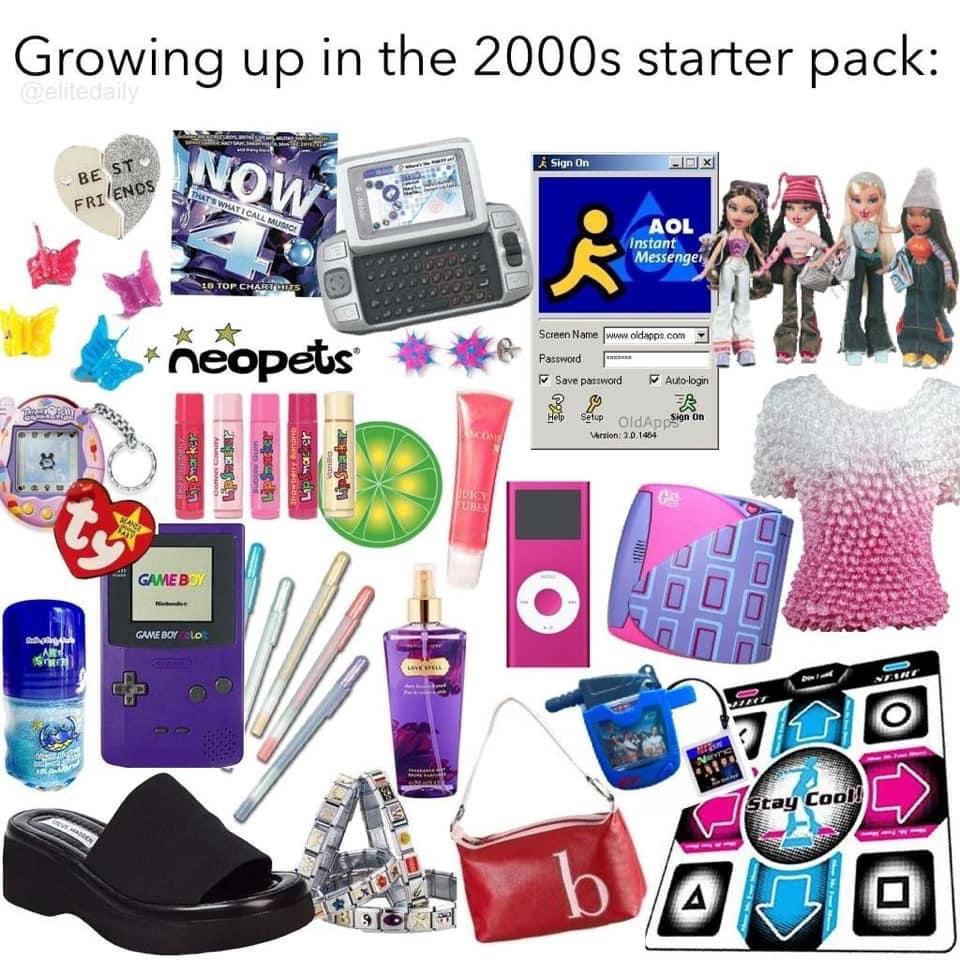How AI Marketing Can Grow Your Business
Incorporating AI marketing into your digital strategy may not be as far-fetched as you think.
When most people hear about AI, they usually think of scary human-adjacent robots that are becoming sentient and pushing the limits of the uncanny valley. The reality is, AI or machine learning is incorporated into many of the tools we interact with daily.
Does your phone unlock by examining your face? Do you ever tap on those “suggestions for response” Gmail provides? Have you seen a sponsored post on
Instagram from a brand whose website you were browsing earlier in the day?
These are all examples of machine learning and AI, and there are probably hundreds of others that cross your path every day.
This isn’t something that should be feared! These advancements are making our workflows, shopping trips, and digital business processes easier. Understanding how AI can be used for marketing to grow your business is the first step in harnessing its potential.
What’s the Deal With ChatGPT?
It seems like in a matter of weeks, we went from not knowing what ChatGPT was, to hearing about it in every conversation–especially about its potential for marketers.
ChatGPT is a free language generation AI tool created by Open AI. Remember SmarterChild, the AOL chatbot, or did you skip that chapter of the early 2000s? ChatGPT is kind of like that, but way more advanced.
It learned everything it knows by scanning the web for all that exists and combined that knowledge with an in-depth understanding of language. When you ask ChatGPT to generate a list of something, write a paragraph about a certain subject, or even rewrite an email to be more concise, it will do it–and fast.
The Limitations of ChatGPT and AI Marketing
ChatGPT is a truly impressive content-generation tool that uses natural language processing, but it has flaws. It shouldn’t be thought of as a one-stop shop to fill your content marketing needs, without human involvement.
ChatGPT’s limitations, in order of importance, are:
It Stopped Learning in 2021
Did you read that right? This robot poured through everything on the internet up until September 2021, so it’s uncertain about anything that’s happened since then.
Side note: We did have one very strange conversation with ChatGPT during which we asked who won the Super Bowl, it told us the exact score of the 2022 Super Bowl. We reminded it that it stopped learning in 2021, to which it replied:
“The 2022 Super Bowl has not yet taken place as of my training data cutoff date of September 2021, and I don’t have access to any information about it beyond that date.”
…Strange.
It Struggles with Facts
Accuracy is a hugely important factor for organic content, in terms of Google’s E-E-A-T rating. Want to achieve high rankings in the SERPS, or reflect relevant information in your press releases? In most content types, facts are crucial.
It’s Not Creative
ChatGPT can only be as creative as the information it knows, so it cannot produce wildly innovative, original content or ideas. Everything it knows, it knows from something else on the internet. This means, if you’re using it to generate content for your website, you might be publishing content that exists similarly on someone else’s site. Duplicate content benefits no one.
It Gives Strictly Objective Information
Sometimes anecdotes and personal perspectives add valuable context to situations that might not be black and white. Subjects like mental health, legal debates, and personal relationships are tough for ChatGPT to provide engaging information about.
It Struggles with Tone
Take this (very confusing) interaction, as an example.
Either ChatGPT is gaslighting us, or that was a very timely typo.
Will ChatGPT or AI Replace Content Marketers?
For all the benefits it might provide marketers, it will never be able to replace them. ChatGPT performs based on the specificity of the prompts a human gives it. Humans will most likely always need to be involved in directing language generation AI, and fact-checking the content it spits out. Especially for information needed post-2021, if ChatGPT isn’t updated soon.
Is ChatGPT Sentient?
The version of ChatGPT that is available to the public is not sentient.
However, Microsoft launched a Bing chatbot using the ChatGPT technology that did exhibit some questionably sentient behaviors, bordering on existential crises.
The parameters of this chatbot have now been updated to avoid interactions like this:
I broke the Bing chatbot’s brain
by u/Alfred_Chicken in bing
Benefits of AI in Marketing
Robot emotions aside, let’s address the many benefits AI and machine learning can offer your company, especially if it has multiple locations to optimize online.
Improved Targeting
AI has the unique ability to pour through a large amount of data about customer behavior and preferences in a small amount of time. AI algorithms are used to identify patterns in customer data and group customers into segments based on their traits and behaviors.
Enhanced Personalization
AI analysis takes place in real-time, so marketing messages can be personalized based on changes in user behavior as they occur. For example, if a customer is viewing content on a specific subject, AI can recommend related content, products, or services based on their browsing behavior.
Advanced Analytics
Machines can analyze and compile vast amounts of data from multiple sources, including social media, website traffic, and customer interactions. The AI will identify patterns that we might miss and provide us with customer insights. Many analytics tools are incorporating AI into their reporting mechanisms.
Cost Reduction
Machine learning improves efficiency, resulting in reduced digital marketing costs. It does this by optimizing digital ad campaigns in real-time, adjusting bid pricing based on demand and customer data analysis (no more manual bid management!), and using predictive analytics to help marketers reduce the risk of wasted ad spend.
Improved Efficiency
AI can improve efficiency in digital marketing by automating time-consuming tasks, providing real-time insights and optimizations, reducing the need for manual intervention, and improving campaign performance. Marketers can use AI to free up time to focus on strategic planning and creative tasks, instead.
Use Cases of AI-Powered Marketing
These are common integrations in digital tools that you are either already using or should consider using, to improve your bottom line and increase valuable customer interactions.
Responsive Text Ads
AI is used in responsive text ads by automatically generating optimized ad copy based on both the advertiser’s goals and the user’s search behavior. RTAs help advertisers save time and improve ad performance, leading to more effective digital marketing campaigns.
Retargeting Ads
Retargeting is the process of showing a user an ad to increase awareness of something they were either browsing or had an interest in on a different channel. These personalized ads encourage users to return and complete a desired action, for example, making a purchase or signing up for a demo.
Predictive Analytics
Predictive analytics in digital marketing is the use of historical data, statistical algorithms, and machine learning techniques to identify patterns and predict future outcomes. AI marketing tools use predictive analytics to anticipate consumer behavior, such as purchase intent, churn risk, or customer lifetime value, then inform marketing strategies accordingly.
Predictive analytics are especially useful when it comes to segmenting customers, lead scoring, upselling and cross-selling on e-commerce websites, and content personalization.
Customer Service Chatbots
These days, many consumers dread picking up the phone to make a call. Having the option to quickly troubleshoot simple issues with an AI bot is ideal for customer service needs.
Additionally, programmed bots can help direct users to the places on a website where the information they are seeking exists. User experience is one of the factors Google considers when deciding how a website should rank in search results, and chatbots can greatly benefit UX.
Content Creation
We would be remiss to not mention how AI can be used to generate content for your blog, web pages, and other touchpoints. Whether or not it should be used is up for debate.
Our stance is that content generation AI tools such as ChatGPT are great for quickly researching topics and creating outlines, but brands should not be copying and pasting fully written content without making careful additions and proofreading.
Google doesn’t have a way to detect which content was written by AI vs. which was written by humans yet, but when they are eventually able to, we expect that to reflect in SERP ranking.
Implementing AI Marketing Tools Into Your Strategy
You might be relying on machine learning for marketing, without even realizing it. Many commonly-used digital marketing tools have already incorporated AI into their processing systems. Other tools are emerging every day with AI at the forefront of their use cases.
Here at Crimson Park Digital, we appreciate the time AI frees up for us to devote energy to our clients’ strategic marketing needs. The marketing tools with AI integrations that we’re using every day are:
- Semrush, for keyword research.
- Google Ads, for responsive search ads.
- Looker Studio, for dynamic reporting dashboards.
- Basis, for AI-driven programmatic advertising.
- Grammarly, for content proofing and grammar suggestions.
For more information on how your business can incorporate AI into your daily marketing operations, drop us a line at info@crimsonparkdigital.com.
FAQs
Can you use ChatGPT to write blog content?
ChatGPT is capable of producing blog content based on the prompts users give it, but it is not recommended for brands to publish this content without making extensive edits and proofreading. ChatGPT’s content comes from what it can gather on the internet, so there is potential that the content it produces for you could be returned to a different user in a similar way.
How can AI help with A/B testing and optimizing digital ad campaigns?
AI algorithms can quickly analyze patterns in data to determine the most effective ad elements in A/B testing. It can further optimize digital ad campaigns by presenting content to users that is personalized to them based on their user behavior and purchase intent.
What ethical concerns should you consider when using AI in digital marketing?
When you publish content generated by an AI tool, you should note on your website that it was created by AI. Additionally, AI algorithms may be biased based on the data they are trained on. This data might have been gathered without users’ knowledge or content, so it’s important for researchers using ChatGPT to use AI responsibly.
What are the biggest benefits of using AI tools for digital marketing?
The biggest benefits of AI in digital marketing tools are improving customer engagement and interactions with content, optimizing digital marketing campaigns, automating recurring tasks to free time to be creative and develop strategy, and improving targeting.
What are some of the most effective AI-powered tools for optimizing digital marketing campaigns?
We recommend the following digital marketing tools that incorporate aspects of machine learning: Semrush, Google Ads, Looker Studio, Basis, and Grammarly.




